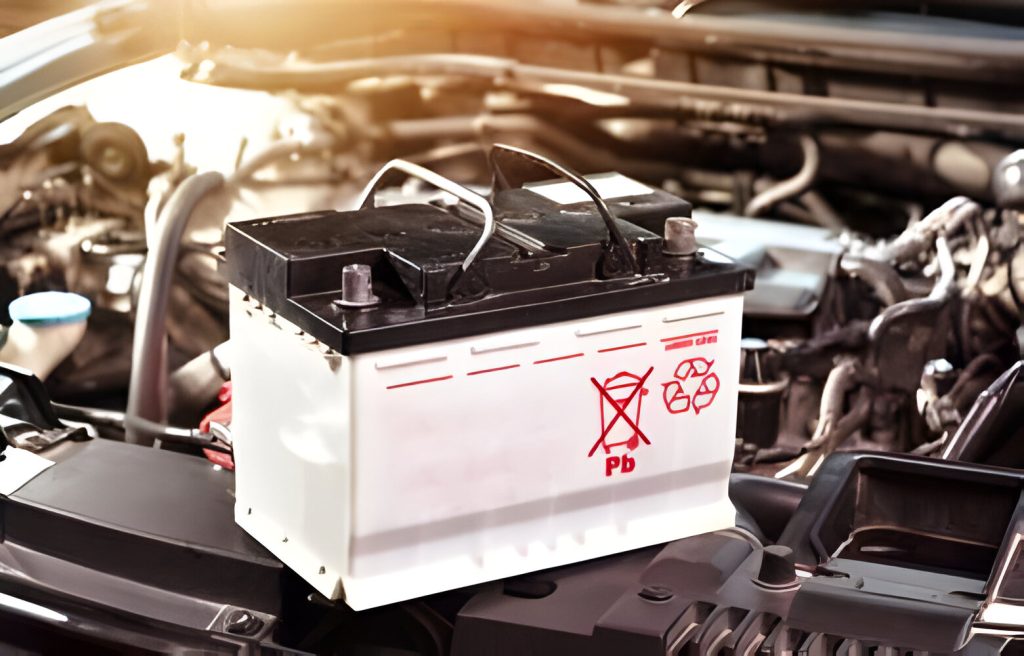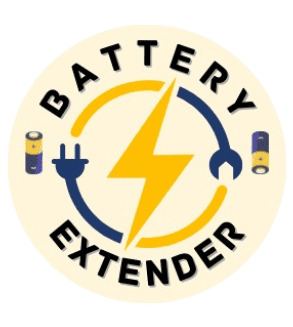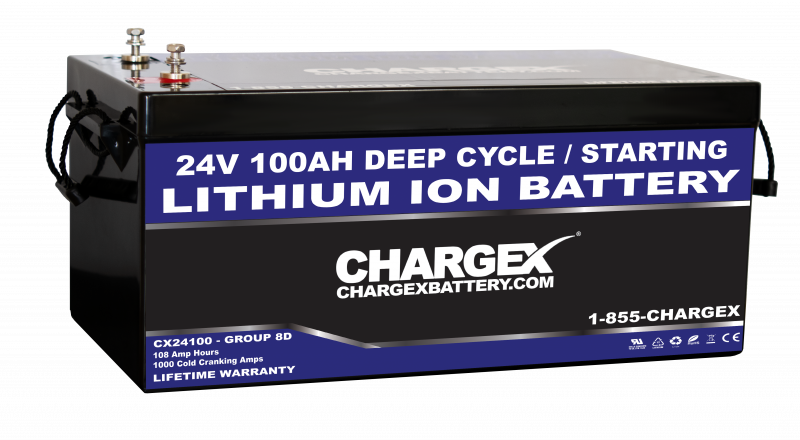A 24V lithium ion battery provides a high-voltage power solution for various applications. Its rechargeable nature ensures long-term usage and efficiency.
These batteries are the powerhouse behind many modern conveniences, from powering electric vehicles to running heavy-duty tools. They offer advantages over traditional lead-acid batteries, including lighter weight, higher energy density, and longer life spans. As the demand for sustainable and reliable energy sources grows, 24V lithium-ion batteries are becoming increasingly popular.
Their ability to maintain a stable voltage throughout the discharge cycle makes them ideal for applications requiring consistent power delivery. Users appreciate the low maintenance and quick charging capabilities, contributing to these batteries’ overall convenience and effectiveness in both consumer and industrial settings. Their versatility and durability make 24V lithium-ion batteries a go-to choice for efficient and robust power solutions.
Introduction To 24v Lithium Ion Batteries
Power up your life with the advanced energy of 24V Lithium-Ion batteries. These batteries are lightweight, long-lasting, and efficient, and they provide reliable power for a wide range of applications.
The Evolution Of Battery Technology
Battery technology has changed the world. The journey from heavy lead-acid to modern Lithium Ion has been remarkable.
- 1800s: Batteries began with simple cells.
- 1980s: Lithium Ion was introduced.
- Today, We have robust, rechargeable batteries.
Why 24v Batteries Stand Out
24V batteries offer unique advantages over other voltages. Their balance of power and size makes them ideal for many uses.
| Feature | Benefit |
|---|---|
| Higher Voltage | Enables more power for devices. |
| Longevity | They last longer than other types. |
| Efficiency | Saves energy, better for the environment. |

Credit: www.powertechsystems.eu
High Energy Density Benefits
The benefits of high energy density in 24V Lithium Ion Batteries are vast. Users experience longer usage times and increased performance. These batteries power various devices, from small gadgets to large vehicles. Their compact size and light weight make them ideal for many applications.
Comparing Energy Storage
Lithium-ion batteries stand out in energy storage comparison. They hold more power than other types, like lead-acid or nickel-metal hydride. Let’s look at how they stack up:
| Battery Type | Energy Density (Wh/kg) |
|---|---|
| Lithium Ion | 150-200 |
| Nickel Metal Hydride | 60-120 |
| Lead Acid | 30-50 |
This table shows that 24V Lithium Ion Batteries have a clear advantage with higher energy density.
Implications For Weight And Size
Lithium Ion Batteries are lighter and more compact. This is a big plus for users. Lighter weight means easier handling and less strain. Smaller size allows for sleeker, more portable designs. Here’s what this means for different products:
- Electronics: Phones and laptops stay slim and light.
- Tools: Power tools have become more user-friendly.
- Vehicles: Electric cars gain better mileage.
With a high energy density, 24V Lithium Ion Batteries make products better. They offer users a perfect balance of power, weight, and size.
Enhanced Efficiency And Power
The 24V lithium-ion battery stands out in the market for its impressive efficiency and robust power delivery. This advanced battery technology has transformed energy use, offering longer life spans and more reliable performance than traditional batteries.
Superior Discharge Rates
Lithium-ion batteries offer superior discharge rates, allowing them to handle high-drain applications easily. Their ability to maintain a consistent power output makes them ideal for tools and devices that require a steady energy supply.
- High energy output, even under heavy use
- Less performance drop during the discharge cycle
- Optimized for high-drain devices
Consistent Voltage Delivery
Another hallmark of the 24V lithium-ion battery is consistent voltage delivery. Unlike other batteries, which experience a drop in voltage as they discharge, these batteries keep devices running smoothly until they run out of charge.
| Charge Level | Voltage Output |
|---|---|
| 100% | Consistently High |
| 50% | Stable |
| Low | Remains Steady |
This ensures devices perform well, with no unexpected shutdowns or power drops.

Credit: www.amazon.com
Longevity And Cycle Life
Exploring the longevity and cycle life of 24V lithium-ion batteries reveals why they stand out. These batteries provide robust performance and durability, which are crucial for various applications.
Life Span Comparison
Lithium-ion batteries are known for their extended lifespan. A typical 24V lithium-ion battery can last between 2000 to 5000 cycles before its capacity drops to 80%. This is significantly higher compared to other battery types. For example:
| Battery Type | Average Cycle Life |
|---|---|
| Lithium-ion | 2000 – 5000 cycles |
| Lead-acid | 300 – 500 cycles |
| NiMH (Nickel-Metal Hydride) | 500 – 1000 cycles |
The Impact Of Deep Cycles
Deep cycling a battery involves discharging it below 50% of its capacity before recharging. This can affect its lifespan. Lithium-ion batteries, however, handle deep cycles better than many others. Here’s why:
- They maintain stability even after frequent deep discharges.
- They recover fully post-deep discharge sessions.
This resilience makes 24V lithium-ion batteries ideal for high-demand applications.
Fast Charging Capabilities
Imagine a world where long waits for battery charging are history. 24V Lithium Ion Batteries are turning this into reality. With their fast charging capabilities, they are a game-changer. They power devices and machines without the long rope to a charging cord. Let’s dive into the details of how they cut down charging time.
Reduced Downtime
Time is precious. 24V Lithium Ion Batteries ensure you spend less time waiting for it. They charge quickly and get you back to work or play faster than ever.
- Quick turn-around: Tools and devices are ready sooner.
- More productivity: Less waiting means more doing.
- Constant power supply: Swap batteries less often.
Comparative Charging Speeds
Let’s compare. Traditional batteries lag in the race to full charge, while 24V Lithium-Ion Batteries leave them in the dust. View the differences in the following table.
| Battery Type | Charging Time to Full | 24V Li-ion Advantage |
|---|---|---|
| Ni-Cd | 1-2 hours | Faster by 50-70% |
| Lead Acid | 8-10 hours | |
| Ni-MH | 3-4 hours |
24V Lithium Ion Batteries achieve a full charge in a fraction of the time. They ensure your devices are always ready for action. With such speed, they are essential for high-demand applications.
Low Maintenance Requirements
The 24V Lithium-Ion Battery stands out with its low maintenance requirements. Unlike traditional batteries, it demands less attention and care, making it ideal for users seeking efficiency and reliability. Explore how ease of use and reduced upkeep costs contribute to the practicality of these batteries.
Ease Of Use
24V Lithium Ion Batteries are user-friendly. They are lightweight and compact. This design allows for simple installation and handling. Users enjoy quick charging and long-lasting power. No regular water top-ups or acid checks are needed.
Minimizing Upkeep Costs
- No need to replace the water or check acid levels.
- Stable chemistry reduces the risk of corrosion or damage.
- A longer life span means fewer replacements over time.
Their sturdy build and stable chemistry reduce the need for replacements, saving money and time. With these batteries, you get enduring performance with minimal investment.
Environmental Advantages
The shift towards 24V lithium-ion batteries marks a significant step in environmental conservation. These batteries offer notable benefits over traditional options, such as lead-acid batteries.
Eco-friendly Aspects
Lithium ion batteries stand out for their eco-friendly features. They possess a high energy density which means they last longer than others.As a result, battery replacements become less frequent.
- Less resource consumption: They use fewer resources due to their long life.
- Reduced emissions: These batteries contribute to lower carbon emissions.
Recycling And Disposal
Proper recycling and disposal methods are crucial for lithium ion batteries. They have important components in them that may be extracted and utilized again.
| Material | Reuse |
|---|---|
| Cobalt | Used in other batteries |
| Lithium | Used in glass and ceramics |
Many companies and governments are setting up specialized recycling programs. These programs help manage battery disposal safely.
Batteries are broken down in a controlled environment. This prevents environmental damage.
Safety Features
Understanding the safety features of 24V lithium-ion batteries is critical. These features ensure stable performance. They protect both the battery and the user. Let’s explore the built-in protections and how these batteries withstand extreme conditions.
Built-in Protection
24V lithium-ion batteries come with advanced technology. This technology keeps the battery safe during use. The built-in protection guards against common issues. These include overcharging, deep discharge, and short-circuiting.
- Overcharge Protection: Automatically cuts off power when fully charged.
- Deep Discharge Protection: Prevents battery damage when the charge is low.
- Short Circuit Protection: Instantly disconnects power in a fault.
- Temperature Control: Monitors and maintains optimal battery temps.
Resistance To Extreme Conditions
These batteries are rigid. They can handle hot and cold weather. The materials used are durable. They resist corrosion and damage from environmental factors.
| Condition | Resistance Capability |
|---|---|
| High Temperatures | Functions well in heat without performance loss. |
| Low Temperatures | Keeps power in the cold, ensuring reliable use. |
| Physical Impact | Tough casing protects from drops and knocks. |
In summary, 24V lithium-ion batteries are built for safety. They come with features that protect against common risks.They are made to endure harsh environments as well. This makes them a reliable choice for various applications.

Applications In Various Industries
The 24V Lithium-Ion Battery powers progress across sectors. This versatile energy source drives innovation, efficiency, and sustainability. Let’s explore its impact on various industries.
Automotive Breakthroughs
The auto industry is shifting gears towards electric vehicles (EVs). 24V Lithium-Ion Batteries play a crucial role here. They provide high energy density and longer life spans, making EVs more reliable and cost-effective. As a result, we see more electric cars on the roads today.
Renewable Energy Systems
Renewable energy relies on efficient storage solutions. 24V Lithium-Ion Batteries store solar and wind power. They ensure a steady energy supply, even when the sun sets or the wind stops, making green energy more practical for homes and businesses.
Portable Electronic Devices
Our gadgets keep us connected on the go. 24V Lithium Ion Batteries power laptops, cameras, and medical devices. They are light and portable. This means we can use our devices longer without charging. It’s a big win for convenience and productivity.

Credit: www.powertechsystems.eu
Future Outlook
The future of 24V lithium-ion batteries looks bright and full of potential. These power sources are set to revolutionize various industries. Let’s explore the exciting developments expected shortly.
Innovations On The Horizon
Researchers and engineers are working tirelessly to bring new features to 24V lithium-ion batteries. These include:
- Increased energy density – Batteries may soon store more power in the same space.
- Improved safety features – Advancements aim to make batteries safer and more reliable.
- Enhanced longevity – New technologies could lead to batteries that last longer.
- Fast charging capabilities – Imagine batteries that recharge in minutes, not hours.
- Eco-friendly options – Efforts are underway to create more sustainable and recyclable batteries.
Market Growth Projections
The 24V lithium-ion battery market is set to grow significantly. Experts predict:
| Year | Market Size | Growth Rate |
|---|---|---|
| 2023 | $5 Billion | 7.5% |
| 2025 | $7 Billion | 9% |
| 2030 | Expected to Double | 10%+ |
This growth is driven by demand for electric vehicles, renewable energy storage, and portable electronics. With such a positive outlook, the future of 24V lithium-ion batteries is auspicious.
Frequently Asked Questions
How Long Does A 24v Lithium Battery Last?
Depending on usage and care, a 24V lithium battery typically lasts 2-5 years or about 500-1000 charge cycles.
What Is The Largest Problem With Lithium-ion Batteries?
The most significant problem with lithium-ion batteries is their susceptibility to overheating, which can lead to thermal runaway and potential safety hazards.
Do Lithium Batteries and Lithium-ion Batteries Differ From One Another?
Yes, there is a difference between lithium-ion and lithium batteries. Lithium-ion batteries are rechargeable, while lithium batteries are disposable and offer a longer life.
At What Voltage Is A 24v Lithium-ion Battery Dead?
A 24V lithium-ion battery is typically considered dead when its voltage drops below 21 volts. Always check the manufacturer’s specifications for precise details.
Conclusion
Exploring the benefits of a 24V lithium-ion battery reveals its efficiency and reliability. Ideal for various applications, these batteries offer longevity and consistent power output. Whether for industrial needs or personal gadgets, choosing a 24V lithium-ion battery promises enhanced performance and sustainability.
Consider this power solution to experience a noticeable improvement in your equipment’s operation.

